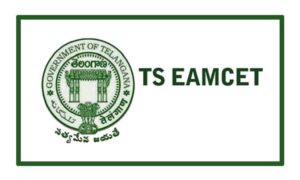In today’s unpredictable business landscape, disruption has become the new normal. Technological breakthroughs, global crises, evolving consumer expectations, and market volatility are reshaping industries faster than ever before. For organisations, thriving in such an environment requires leaders who can not only anticipate challenges but also adapt strategies with agility. This is where the role of general management becomes critical. By fostering resilience, innovation, and effective decision-making, general managers help organisations navigate uncertainty and turn disruption into opportunities for growth.
Introduction: Understanding General Management in a Disruptive Era
General management encompasses the planning, coordination, and execution of strategies across diverse business functions. Unlike specialised roles, it focuses on aligning the bigger picture—ensuring that departments work cohesively to achieve organisational goals. In the face of disruption, general management acts as the stabilising force, guiding businesses through ambiguity while preparing them for the future.
Leaders with formal training in areas such as strategy, operations, and leadership are better positioned to address these complexities. This is one reason why many professionals pursue a general management course to strengthen their understanding of how to lead organisations through turbulent times. By mastering cross-functional skills, managers gain the ability to address both immediate risks and long-term transformation.
The Nature of Disruption in Business
Disruption is not confined to one area—it can stem from technology, regulation, environment, or even cultural shifts. Understanding these drivers is essential for effective general management:
- Technological Disruption: The rise of AI, automation, and digital platforms is transforming industries like finance, healthcare, and retail.
- Economic Disruption: Inflation, supply chain breakdowns, and global recessions create instability for businesses of all sizes.
- Environmental and Social Disruption: Sustainability concerns and changing consumer values are pushing organisations to adopt more responsible practices.
- Geopolitical Disruption: Trade wars, conflicts, and shifting global alliances directly impact corporate strategies.
A general manager’s role lies in recognising how these forces interact and in designing strategies that minimise risks while capitalising on emerging opportunities.
Key Responsibilities of General Managers During Disruption
1. Strategic Agility
General managers must adapt strategies quickly to respond to unexpected changes. This requires constant environmental scanning, data-driven decision-making, and the ability to shift priorities without losing sight of the long-term vision.
2. Cross-Functional Leadership
Disruptions often create silos, as departments focus on firefighting within their domains. General managers bridge these gaps, ensuring collaboration and alignment across finance, marketing, operations, and HR.
3. Innovation and Transformation
Turning disruption into opportunity often demands innovation. General managers encourage experimentation, pilot new technologies, and redesign business models to remain competitive.
4. Stakeholder Communication
Transparent communication with employees, customers, and investors is essential during times of uncertainty. General managers must build trust by conveying challenges honestly and outlining clear action plans.
5. Risk Management and Resilience
From supply chain vulnerabilities to cybersecurity threats, risks increase during disruptions. General managers develop contingency plans and invest in resilience-building measures to ensure continuity.
Case Examples: General Management in Action
- Technology Sector: During the rise of cloud computing, general managers in IT companies had to lead large-scale digital transformations. Their ability to upskill teams and redesign workflows determined their competitive edge.
- Retail Industry: When the pandemic forced a shift to online shopping, general managers played a crucial role in transitioning brick-and-mortar retailers into e-commerce-ready organisations.
- Healthcare: Amid supply shortages and heightened demand, general managers coordinated supply chains, staffing, and digital solutions like telemedicine to ensure uninterrupted care.
These examples highlight how general management serves as a linchpin during times of upheaval, enabling organisations to pivot successfully.
Preparing for Disruption: Skills for General Managers
To navigate disruption effectively, general managers must strengthen specific skill sets:
- Analytical Thinking: Making sense of data to anticipate challenges.
- Digital Literacy: Understanding emerging technologies and their business implications.
- Change Management: Leading teams through transitions smoothly.
- Emotional Intelligence: Supporting employees during uncertainty while maintaining morale.
- Strategic Vision: Balancing short-term problem-solving with long-term positioning.
Tips for Emerging Leaders
For aspiring leaders, especially fresh graduates and mid-career professionals, building the competencies required for general management can seem daunting. A structured approach includes:
- Gaining exposure to multiple functions through cross-departmental projects.
- Participating in leadership development programs.
- Practising decision-making in simulated business scenarios.
- Building networks to exchange insights on managing disruption.
The Future of General Management in a Disruptive World
Disruption will only accelerate in the coming years. From AI-driven automation to climate-related challenges, organisations will need leaders who can combine strategic clarity with operational flexibility. General managers of the future will be expected to act not only as decision-makers but also as change agents who foster innovation and inclusivity.
By continuously upskilling and embracing lifelong learning, general managers can ensure their organisations remain competitive while contributing to sustainable growth.
Conclusion
Disruption is no longer an exception but a defining characteristic of the modern business landscape. The role of general management is to guide organisations with agility, resilience, and foresight, ensuring stability amidst uncertainty. Leaders who embrace innovation, foster collaboration, and prepare for risks will not only survive disruption but also emerge stronger from it.
For professionals looking to strengthen their leadership abilities, programs like the IIM general management course offer structured pathways to develop these vital skills. Ultimately, effective general management transforms disruption from a threat into a catalyst for progress.






Be First to Comment